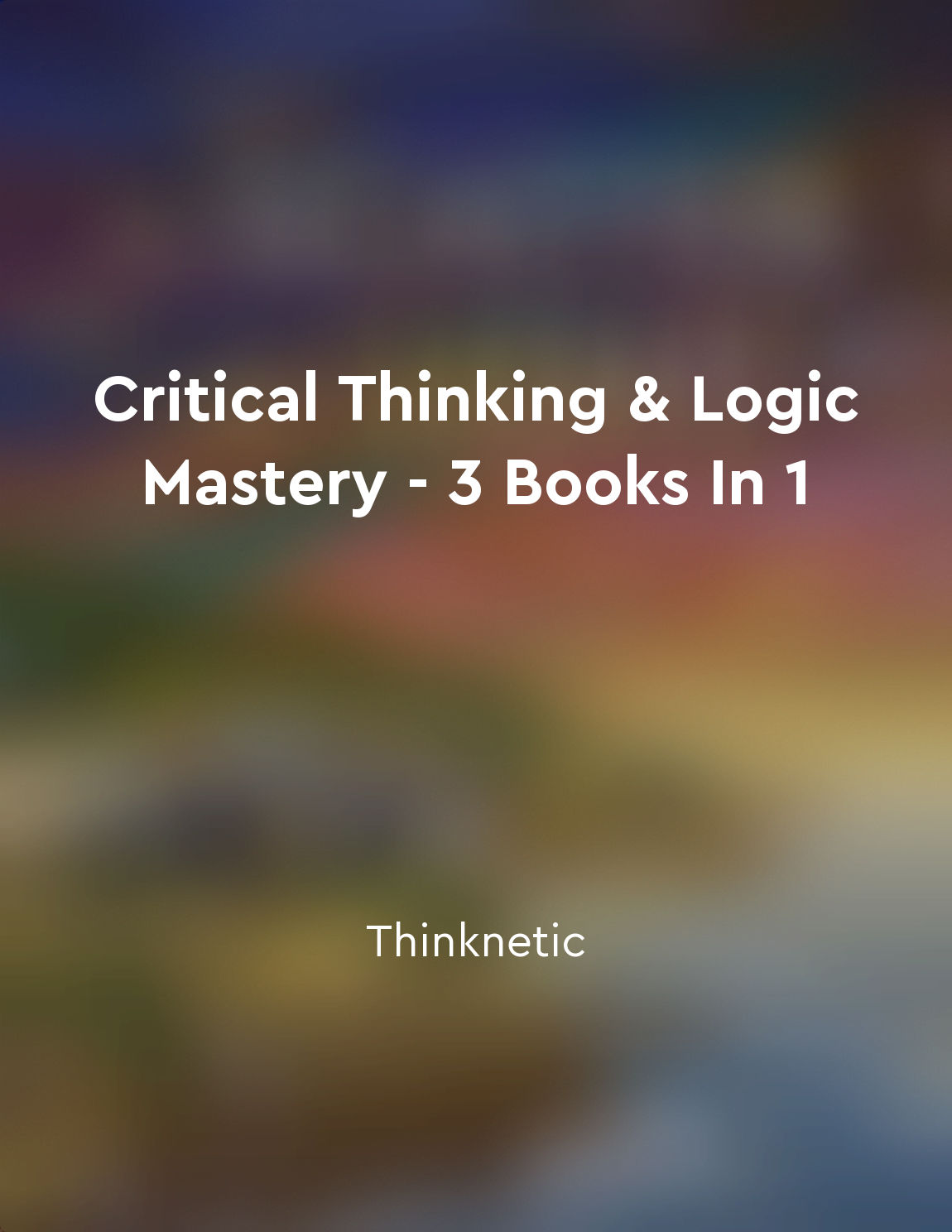Reason guides moral decisionmaking from "summary" of THE CRITIQUE OF PRACTICAL REASON by Immanuel Kant
Reason, as the faculty of higher cognition, is the guiding principle in moral decision-making. It serves as the foundation upon which all moral actions are based and evaluated. Through the use of reason, individuals are able to discern between right and wrong, good and bad, and make decisions that align with moral principles. Reason allows individuals to consider the consequences of their actions, weighing the potential outcomes and choosing the course of action that best upholds moral values. In moral decision-making, reason acts as a moral compass, directing individuals towards actions that are in accordance with universal moral laws. Through reason, individuals are able to identify and understand these moral laws, which are independent of personal desires or inclinations. Reason enables individuals to recognize their moral duties and obligations, guiding them towards actions that are morally right, rather than morally wrong. Furthermore, reason facilitates moral autonomy, allowing individuals to act in accordance with their own rational will. By using reason to determine the right course of action, individuals are able to act freely and autonomously, without external influences or constraints. Reason empowers individuals to make moral decisions based on their own rational judgment, rather than being swayed by external factors or moral authorities.- Reason serves as the foundation of moral decision-making, guiding individuals towards actions that are morally right and in accordance with universal moral laws. Through the use of reason, individuals are able to discern between right and wrong, act autonomously, and uphold moral principles in their actions. By relying on reason as the guiding principle in moral decision-making, individuals are able to navigate the complexities of morality and make decisions that are in line with their rational will.
Similar Posts

Relying on evidence leads to more sound conclusions
When it comes to making conclusions or decisions, it is crucial to rely on evidence rather than on assumptions or emotions. Evi...

The study of nature and reason will lead to a better understanding of the universe
The universe is a vast and mysterious place, filled with countless wonders and phenomena that have puzzled humanity for centuri...
Effective policing has reduced crime rates
The idea that effective policing has reduced crime rates is a complex one. It suggests that law enforcement practices have play...
Take action and maintain momentum
When you have a goal in mind, it’s easy to get excited and fired up. But that initial burst of motivation can fade away quickly...
The mind is eternal and infinite
The mind, as conceived by Spinoza, is eternal and infinite. By eternal, he means that the mind does not have a beginning or an ...
Overlapping consensus
The idea of overlapping consensus plays a crucial role in understanding how a diverse society can achieve stability and justice...
Cooperation is essential for human survival
The human instinct is deeply rooted in our evolutionary past, shaped by millions of years of adaptation to a changing world. On...
Be content with what you have
Seneca advises us to be content with what we have, rather than constantly craving for more. He believes that true happiness lie...
Selfover others
The principle of Selfover others is at the core of utilitarianism, which asserts that each individual should prioritize their o...
Transcendental aesthetic reveals the conditions of sensibility
The Transcendental Aesthetic, as expounded in the Critique of Pure Reason, serves the crucial function of laying bare the funda...

